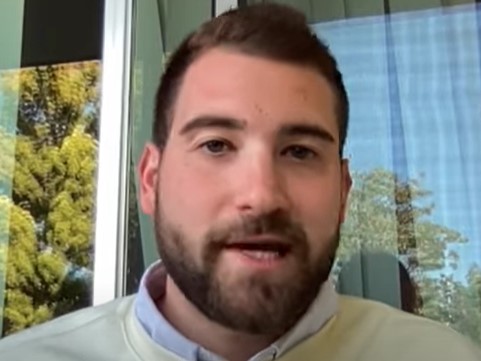TIKTOK: SO YOU THINK YOU CAN DO EVERYTHING

Dr. Ben Rein, Neuroscientist
By Ben Rein
“You ever see something like this, and you’re like: ‘Yeah, I could do that?’”
Almost 10% of Americans think they could beat a gorilla or a lion in a fight. Without ever experiencing that, it’s easy to be overconfident.
But what’s important about Dunning-Kruger is that everyone’s vulnerable to it. It’s not about how smart you are, it’s about how much experience you have in that specific domain. And unfortunately, science and medicine are two fields that are particularly vulnerable to Dunning-Kruger.
It’s easy to fall into it. You read an article about psychedelics, and you feel like you know a lot about this new, exciting topic, so you start talking about it, and that’s great, there’s nothing wrong with that. But when it’s related to something complicated like neuroscience, there’s probably a lot more information out there that you haven’t learned yet. So, when you start talking about it, it can be reckless or even dangerous.
In general, it’s good to be aware of our human tendency to overestimate ourselves and our abilities—whether it’s related to doing this (points at the chair) or learning something new. And the next time someone starts teaching you something and they seem full of confidence, I implore you to ask yourself: Are they truly an expert, or are they at the peak of Mount Stupid?
Dunning had smart advice about how to protect ourselves from this effect: When you think you have an important insight, step back for a moment and ask yourself two questions. “Could I be wrong?” and “What don’t I know?”
We are proud to report that SyndicatedNews.NET is now republishing OpenMind Magazine at https://SNN.BZ under Commons License Attribution-NonCommercial-NonDerivatives 4.0 International (CC BY-NC-ND 4.0 license .





 Afrikaans
Afrikaans Albanian
Albanian Amharic
Amharic Arabic
Arabic Armenian
Armenian Azerbaijani
Azerbaijani Basque
Basque Belarusian
Belarusian Bengali
Bengali Bosnian
Bosnian Bulgarian
Bulgarian Catalan
Catalan Cebuano
Cebuano Chinese (Simplified)
Chinese (Simplified) Chinese (Traditional)
Chinese (Traditional) Corsican
Corsican Croatian
Croatian Czech
Czech Danish
Danish Dutch
Dutch Esperanto
Esperanto Estonian
Estonian Filipino
Filipino Finnish
Finnish French
French Frisian
Frisian Galician
Galician Georgian
Georgian German
German Greek
Greek Gujarati
Gujarati Haitian Creole
Haitian Creole Hausa
Hausa Hawaiian
Hawaiian Hebrew
Hebrew Hindi
Hindi Hmong
Hmong Hungarian
Hungarian Icelandic
Icelandic Indonesian
Indonesian Irish
Irish Italian
Italian Japanese
Japanese Javanese
Javanese Kannada
Kannada Kazakh
Kazakh Khmer
Khmer Korean
Korean Kyrgyz
Kyrgyz Lao
Lao Latin
Latin Latvian
Latvian Lithuanian
Lithuanian Luxembourgish
Luxembourgish Macedonian
Macedonian Malagasy
Malagasy Malay
Malay Malayalam
Malayalam Maltese
Maltese Maori
Maori Marathi
Marathi Mongolian
Mongolian Myanmar (Burmese)
Myanmar (Burmese) Nepali
Nepali Norwegian
Norwegian Pashto
Pashto Persian
Persian Polish
Polish Portuguese
Portuguese Punjabi
Punjabi Romanian
Romanian Russian
Russian Samoan
Samoan Scottish Gaelic
Scottish Gaelic Serbian
Serbian Sesotho
Sesotho Shona
Shona Sindhi
Sindhi Sinhala
Sinhala Slovak
Slovak Slovenian
Slovenian Somali
Somali Spanish
Spanish Sundanese
Sundanese Swahili
Swahili Swedish
Swedish Tajik
Tajik Tamil
Tamil Telugu
Telugu Thai
Thai Turkish
Turkish Ukrainian
Ukrainian Urdu
Urdu Uzbek
Uzbek Vietnamese
Vietnamese Welsh
Welsh Yiddish
Yiddish Yoruba
Yoruba Zulu
Zulu